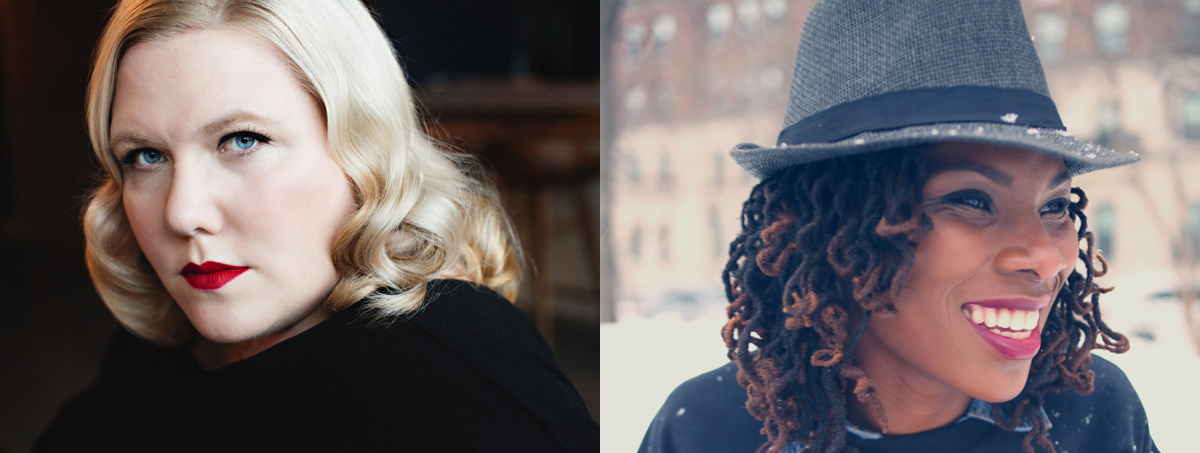Lindy West, Luvvie Ajayi, and Moira Weigel Are ‘Super Women’ at the Boston Book Festival

Lindy West, Luvvie Ajayi, Images provided
On Saturday, Bostonians were treated to a vibrant discussion of modern feminism, as Lindy West, Luvvie Ajayi, and Moira Weigel took the stage for a panel moderated by Meghna Chakrabarti, in the Boston Book Festival’s “Super Women” panel.
West has contributed work to the New York Times, GQ, Cosmopolitan, Jezebel, and more, and has a new book out called Shrill: Notes from a Loud Woman. Much of her blogging and digital journalism deals with sexism, homophobia, and confronting online hate. Ajayi has been promoting her book I’m Judging You: The Do-Better Manual and has a prominent online presence on her blogs Awesomely Luvvie and Awesomely Techie. Labors of Love: The Invention of Dating, Weigel’s new book, is a meticulously researched feminist history of dating and love. Super Women, indeed.
To get things started, Chakrabarti, the host of WBUR’s Radio Boston, looked out to the audience and asked, “Are you feeling strong?” A warm cheer responded in the affirmative. Scanning the room, it was very clear that the women outnumbered the men. Would these super women be preaching to the choir? Did more men need to hear this? The answer to both is probably yes, but the panelists did much more than preach in their conversation. And they didn’t skirt the tough topics. Chakrabarti began by asking the panel, “What is strong? Can you define it?” That seemingly innocuous question led to discussions of Trump and his recently leaked “locker room talk” tapes, finding “resilience in communities,” and what it means to be vulnerable. West explained that she believed strength was active, “a responsibility to call people out…but a lot of people don’t have that privilege to do so.”
Privilege seemed to mark a significant through line during the panel. Chakrabarti asked West, Ajayi, and Weigel the role of men in these discussions: “What is strong masculinity?” There was a deep pause. Ajayi answered, “I need more action. Being a ‘good man’ is something you do, not something you are.” Weigel bounced off of her, saying, “it’s imperative for men to show their strength by being emotional.”
Emotional vulnerability was a key aspect of their answers. “Be vulnerable with us,” Weigel reiterated. Chakrabarti continued to press the women about the prospect of there genuinely being “good men.” They all agreed that there were men to be proud of—who were fighting the good fight—but they put emphasis on the “system.” “You can’t just say, ‘oh, I love certain men,’ here’s a list. It’s about recognizing the larger problem,” Ajayi explained.
The degree to which all of the women have maintained a sense of humor despite their often-heavy subject matter was on full display during the panel, as Weigel apologized to her mother for cursing and West brought her critical, comical lens to the discussion.
Ultimately the women offered some concrete advice to the audience. “Find mentors” and “keep writing, no matter what,” were efforts to contrast the “don’t try this at home” style of writing these women have employed in the past. They implored the audience to take active steps away from damaging systems and try their best to ignore the internet hate, “the trolls.” “I hate that word,” West chimed in. They all suggested confronting that hate with humor, but also being pragmatic. “Don’t use your address online,” West offered. “And get off White Pages.” Continue having conversations about “intersecting systems,” Weigel suggested. And Ajayi with a gesture to West, added, “Be shrill.”


